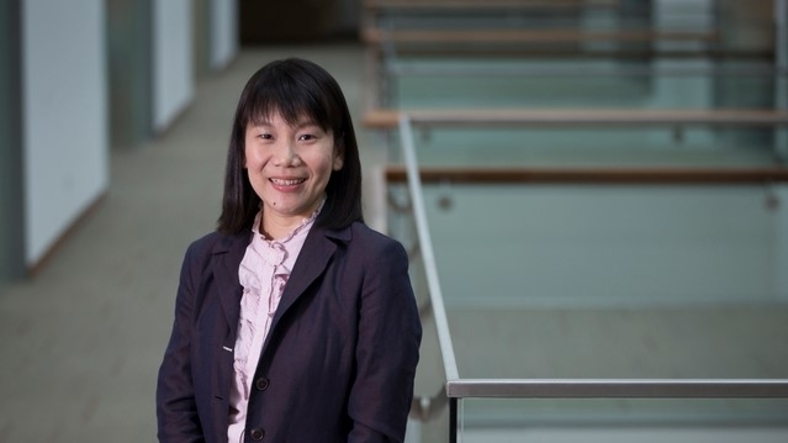
Tan Kar Way, the winner of the 2019 Innovative Teacher Award, spent years refining her teaching methodology. She explains the experiences and goals that shaped her meticulous approach.
It should come as no surprise that an academic who specialises in the study of intelligent systems approaches teaching in a highly systematic fashion. Tan Kar Way, an Assistant Professor of Information Systems at SMU’s School of Information Systems, believes that effective teaching enables effective learning.
For her, effective teaching means “constant adaptations to industry and research trends, new learning methods, and continuous reflections that allow for dynamic adjustments to teaching materials”, while effective learning requires educators to “motivate and empower students with knowledge, applicable experience, and the skills needed to become lifelong learners”.
With these guiding principles in place, Kar Way worked out an end-to-end spectrum that features pre-class content development, engaging in-class delivery, regular feedback for adaptive learning, and continuous learning beyond the classroom.
This considered approach earned her the 2019 Innovative Teacher Award from the Centre for Teaching Excellence. The award celebrates educators who promote new ways of learning and add value to the curriculum. Here’s a deeper look at how she developed her pedagogical methods.
Content: Real-world complexities
Before entering academia, Kar Way worked for IBM as an IT consultant for seven years. Her real-world work experience has been invaluable when it comes to content development. “I firmly believe that the curriculum should be relevant to students joining the workforce. My working experience has been my inspiration to link classroom cases, assessments, and projects to real-life scenarios which go beyond theoretical questions,” she says.
For example, case studies taught in classes are typically simple situational dilemmas or ones that provide options for decision-making. But in her Enterprise Web Solution class, Kar Way conceptualised a more in-depth, practice-based approach by combining three types of case studies. She explains: “This helps students develop higher cognitive levels. Through scaffolding exercises that span several weeks, they are able to create new scenarios, evaluate various designs and eventually implement and verify these designs through the development of their solutions.”
Delivery: Means of engagement
Keep students’ attention for a full three-hour class is no mean feat. Rather than sticking to pure theory, Kar Way creates an active learning environment by introducing engaging activities. She begins with an active participation activity, such as using online engagement tools as a way to reiterate previously taught content or to address feedback.
The remainder of the class includes attention-boosting moments, active participation and collaborative learning activities. “I find that students learn more by discovering the concepts for themselves rather than being taught,” she says. “I refined many of these activities only after I started teaching my courses, and I have shared them with other instructors teaching the same courses.”
Feedback loop: Finger on the pulse
Kar Way also ensures her course design incorporates time for feedback and reflection, so that she can “address questions, doubts, and misconceptions, and ensure individual needs are satisfied in a timely manner”.
To verify that students understand what has been taught and that individual learning needs have been met, she deploys a two-step feedback mechanism. The first is a learner-centred step, whereby students are given the time to articulate key concepts on a weekly basis. They are also asked for their reflections, via a survey.
The second is an instructor-centred step, whereby she use those student reflections to evaluate the course. “I collect reflections weekly and provide timely feedback to students. As a result of their feedback, I am able to adjust the weekly revision content.”
Continuous learning: School of life
Upon the completion of her class, students are encouraged to participate in complementary out-of-class activities to ensure continuous learning. Apart from ungraded learning quizzes and additional case studies or questions that require independent study within the course, Kar Way also actively seeks out hackathon opportunities for her students.
“I also encourage them to explore courses on Massive Open Online Courses (MOOC) platforms, to help them better prepare themselves for internships and careers. These are especially useful for students who consistently have a good grasp of in-class concepts,” she says.
New aspirations
Having put so much thought into her methodologies, Kar Way wants to inject even more innovation into her teaching. “Going forward, my aspiration as a practice-track faculty member is to create more experiential opportunities – such as interdisciplinary courses and industry partnerships – for students to become career-ready,” she says. “As SMU emphasizes small-class, project-based experiential learning through real-world cases, I hope to contribute to more cross- school collaborations and industry engagements, to build leading-edge, practice-based interdisciplinary capabilities.”


